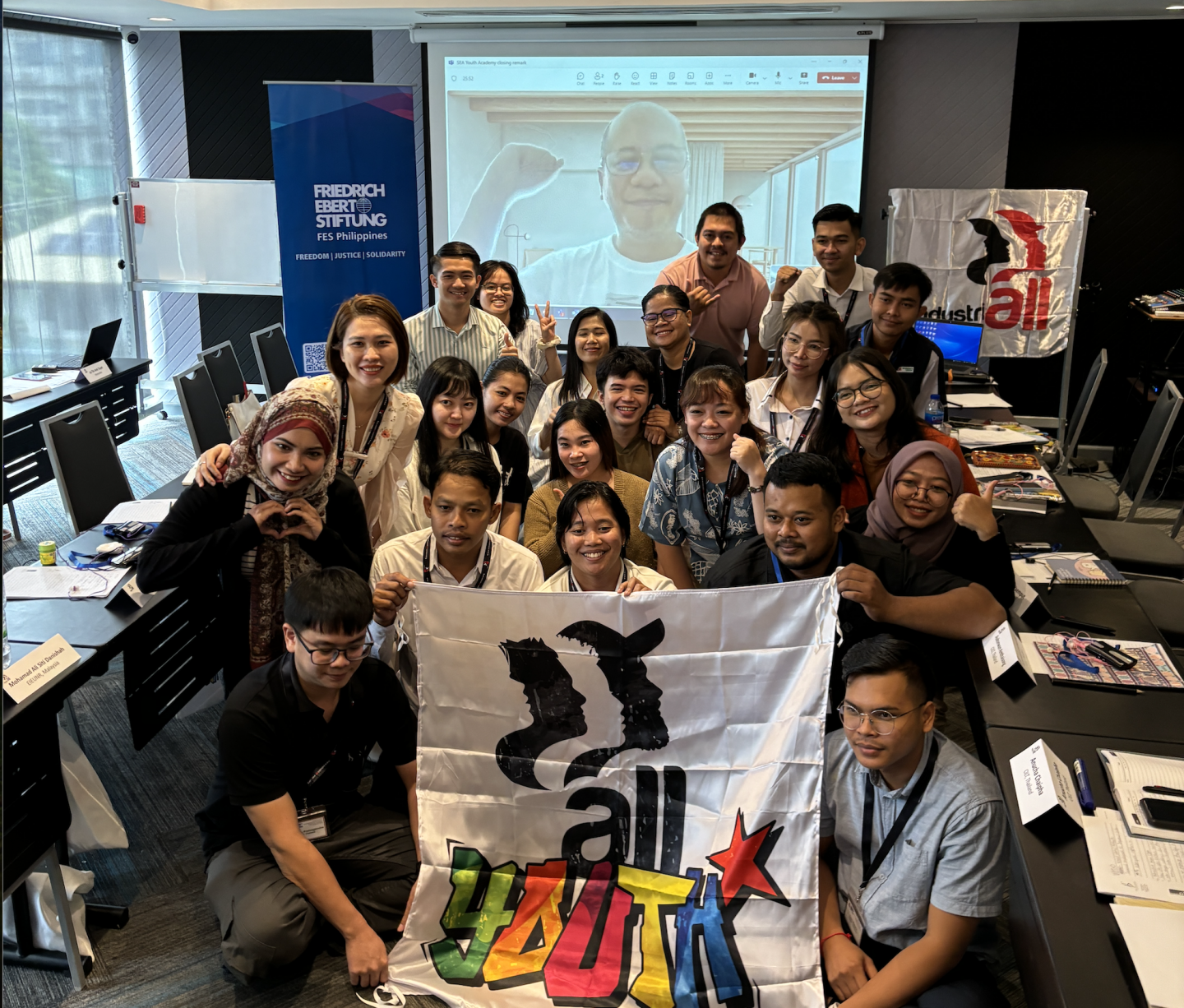Read this article in:
English
17 September, 2024Young unionists from South East Asia met in Manila,14 September, and called on trade unions to recognize youth as catalyst for change and provide a 20 percent youth quota in routine union training.
They stressed the importance of capacity building in eliminating gender-based violence and harassment (GBVH), including GBVH and the Convention 190 provisions in collective agreements and union policies.
The recommendations were part of the action plan produced by the South East Asia
Youth Academy on 11-14 September which were:
• conduct youth survey and mapping of youth density
• organize more young workers into trade unions
• establish youth committees at factory, local union and federation levels
• reactivate existing IndustriALL national youth committees
• build youth leadership to ensure union sustainability
• formulate union policies on 20 percent youth training quota including organizing and GBVH training
• inclusion of GBVH and Convention 190 provisions in collective agreements
• advocate for gender equality in wage and fair promotion opportunity
• create a youth activist networks
• include youth in decision-making body and in affiliates’ meetings
• set up social media accounts to increase youth visibility
The co-chair of the IndustriALL youth working group in South East Asia, East Asia and Pacific (SEA2PAC-Y) Jean Faye Daguman reviewed the 2023 youth academy action plan.
She said SEA2PAC-Y has accomplished part of the action plan, such as establishment of national youth committees in Indonesia and Cambodia, active participation of young workers in regular SEA2PAC-Y meetings and a virtual organizing training in collaboration with ITUC organizing academy. The youth also developed three resolutions on: restoration of democracy in Myanmar, more training resources and statutes amendments through SEA2PAC-Y platform.
The youth academy was attended by 22 youth from Cambodia, Indonesia, Japan, Malaysia, Philippines, Thailand and Vietnam.
In the four day meeting, the participants discussed a variety of issues such as youth as the agent of change, social justice in a globalized South East Asia, climate change and just transition, gender equality and inclusion of LGBTQI workers, informalization and decent work.
In addition, the youth visited the Bantayog ng mga Bayani (Monument to the Heroes) and the museum in Quezon city, learning the history of anti-marital law movement and people’s revolution four decades ago, exchanging views with former youth activists and connecting their experience with their own national histories.
IndustriALL youth officer Sarah Flores said :
“Brining young leaders to debate trade unions practices in a rapidly changing world of work is key if we expect this generation to take over. Understanding the different dynamics in the region, past and present, will contribute to improving their actions.”
IndustriALL regional secretary for South East Asia Ramon Certeza said :
“We appreciate the contribution of young unionists in this important meeting that debates the mega trends that we are confronted with in the globalized economy. We envisage lasting change for the young workers’ movement that will increase the organizing strength. The future of the trade union movement lies in the hands of young unionists.”
This is the beginning of the second cycle of IndustriALL Global Union - Friedrich-Ebert-Stiftung South East Asia Youth Academy, which will last from 2024 to 2026.







